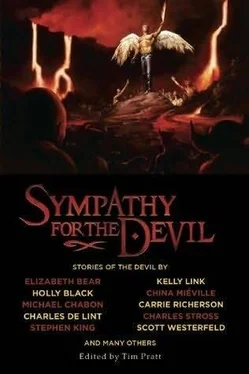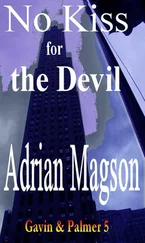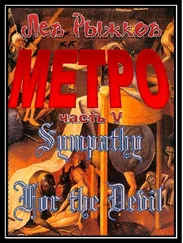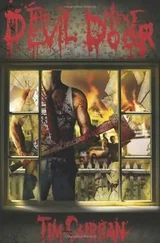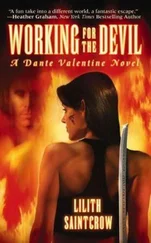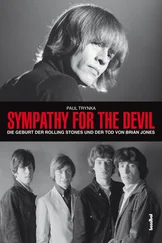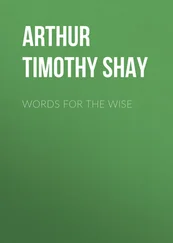He thought seriously about this as he scuttled between the campsites, scoring a Bireley’s bottle from one trash can and two Frostie Rootbeer bottles from another. The Playtime Arcade had little treasure chests you could buy with blue tickets, real plastic ones with tiny brass locks, but he was too little to play the games that gave out blue tickets and scared to go in the arcades by himself anyway. Still, there were cigar boxes and glass jars and tin cans. Any of those might do for a start.
He spotted a good-sized cache of Nehi bottles at one campsite, but the campers were still there: an elderly man and woman seated in folding chairs, talking sadly and interminably about something. He decided to go into the dunes a while, to give them time to leave. Sometimes people wandered into the dunes with pop bottles, too, though usually all there was to find were beer bottles or little whiskey bottles in screwed-up paper bags. Once in a while the sand would drift away from old, old bottles, purple from time and the sun, and those could be sold to the old lady who ran the junk shop on Cypress Street. She’d pay ten cents per bottle, very good money.
So he struggled through the willow thicket, which was swampy and buzzing with little flies, and emerged into the cooler air of the dunes. Trails wound here through the sand, between the lawns of dune grass and big, leaning, yellow flowers. He knew all the labyrinths between the rows of cypress or eucalyptus trees that had been planted there, a long time ago, when somebody had built a big hotel on the sands. There was a story that one night a storm had come up and blown away the big dune from under the hotel, and the hotel had tipped over like a wrecked ship in the sand. Sometimes the winter storms would blow away enough sand to uncover some of the lost stuff from long ago: old machinery, a grand piano, a box of letters, a Model T Ford.
All the last storm seemed to have uncovered was clamshells. Markie wandered out from the edge into the full sunlight and the sea wind blew his hair back from his forehead. He couldn’t hear the waves at all, though they were crashing white with the spray thrown back from their tops. He couldn’t hear any sound, though there were little kids playing at the edge of the water, and their mouths were opening as they yelled to one another. He looked around him in confusion.
He was in the place at the edge of the dunes where the trees had died, a long time ago, and they were leafless and silver from fifty years of salt spray, with their silver branches still swept backward from the winds when they were alive. There was a little line of bright water running in a low place beyond the edge, with some green reeds and a big white bird with a crest standing motionless, or moving its neck to strike at a silver fish or a frog. On the other side of the water the high dunes started, the big mountains of sand where there were no trees, only the sand changing color, white or pink or pale gold, and the sky and the pale floating clouds and their shadows on the sand. That was where the old man was sitting. He was looking at Markie.
“Come here, boy,” he said, and his voice was so loud in the silence Markie jumped. But he came, at least as far as the edge of the water. The white bird ignored him. The old man was all in white, a long robe like saints wore, and his hair and beard were long and white too. His eyes were as scary as Ronnie’s eyes.
“I want you to run an errand for me, boy,” he said. His voice was scary, too.
“Okay,” said Markie.
“Go into the town, to the arcade with the yellow sign. Ask for Smith.”
“Okay,” said Markie, though he was scared to go inside the arcades.
“Give him a message for me. Ask him how he likes this new servant of mine. Say to him: My servant has set himself to feed and clothe the poor, and to break the shackles of the oppressed, and to exalt the wise even to the stars. He has invoked the names of the old kings and the days of righteousness. Why should he not succeed? You go to Smith, boy, and you ask him just that. And go along the beach, it’ll be faster. Do it, boy.”
“Okay,” said Markie, and he turned and fled. He made no sound floundering through the hot sand, but as he got to the hard wet sand there was noise again: the roar of the surf, the happy screaming of the little kids playing in the water. He ran up the beach toward the town and never looked back once.
By the time he reached the town and climbed up the ramp from the beach, he had decided to turn in his pop bottles at Hatta’s and go home along the state highway. Just as he’d made up his mind on this, however, he passed the yard where the Anderson’s big dog slept on its tether, in the shade under a boat up on sawhorses. The dog woke and leapt up barking, as it often did; but to Markie’s horror the tether snapped, and the dog came flying over the fence and landed sprawling, right behind him. Markie ran so fast, jolting along the hot sidewalk, that a bottle flew out of his knapsack and broke. The dog stopped, booming out furious threats, but Markie kept going until he got around the corner onto Cypress Street and felt it was safe to slow down.
“Okay,” he gasped, “Okay. I’m just going to turn in my bottles and then I’m going to the arcade, okay?”
There was a rumble like thunder, but it was only somebody starting up a motorcycle in front of Harry’s Bar.
Markie limped into Hatta’s News, Cigars and Sundries, grateful for the cool linoleum under his feet. Mr. Hatta wasn’t there; only sulky Mary Beth Hatta, who had lately started wearing lipstick. She barely looked up from her copy of Calling All Girls as he made his way back to the counter. “Deposit on bottles,” he mumbled, sliding his pack off and setting the bottles out one by one.
She gave a martyred sigh. “Eight cents,” she told him, and opened the cash register and counted a nickel and three pennies into his sweaty palm. On his way out he slowed longingly by the comic book rack, but her voice came sharply after him:
“If you’re not going to buy one of those, don’t read them!”
Ordinarily he’d have turned and responded in kind, lifting the tip of his nose or maybe the corners of his eyes up with his fingers; but he remembered the old man in the dunes and it made him feel cold all over, so he hurried out without word or gesture.
At the corner of Pomeroy Avenue he turned and stared worriedly down the street. This was the Bad Part of town. There on the corner was the Peppermint Twist Lounge, and beyond it was the Red Rooster Pool Room, and beyond that the Roseland Ballroom, where fights broke out every Saturday night. Further down toward the pier were the penny arcades: Playland, with its red sign, and the other one with no name. Its yellow sign just said ARCADE.
Markie wasn’t ever supposed to go over here, but he did. For a while after his daddy had moved out Markie had been able to see him by walking past the Red Rooster, looking quickly in through the door into the darkness. His daddy would be at the back, leaning listlessly against the wall with a beer bottle or a pool cue in his hand. If he saw Markie he’d look mad, and Markie would run. Then one day his daddy hadn’t been there any more, nor had he been there since.
Markie looked in, all the same, as he trotted down the street. No daddy. Markie kept going, all the way down the street, to stand at last outside the doors of the arcade with the yellow sign. He drew a deep breath and went in.
The minute he crossed the threshold into darkness, he wanted to clap his hands over his ears. It was the loudest place he’d ever heard. In a corner there was a jukebox booming, telling him hoarsely that Frankie and Johnny were lovers. Next to that was a glass booth in which a marionette clown jiggled, and as its wooden jaw bobbed up and down a falsetto recording of The Farmer in the Dell played nearly as loud as the jukebox. From the back came the monotonous thunder of the skee-ball lanes, and the staccato popping of the shooting gallery: somebody had trapped the grizzly bear in his sights and it stood and turned, stood and turned, bellowing its pain as the ducks and rabbits kept racing by. There were pinball machines ringing and buzzing, with now and then a hollow double knock as a game ended, and a shout of disgust as a player punched a machine or rattled it on its legs. In a booth fixed up with a seat and steering wheel, somebody was flying as grey newsreel skies from the last World War flickered in front of them, and the drone of bomber engines played from a speaker. There were big boys standing around, with slicked-back hair and cigarettes, and some of them were shouting to each other; most of them were silent at their games, though, and dead-eyed as the waxen lady in the booth who swung one arm in a slow arc along her fan of playing cards.
Читать дальше
